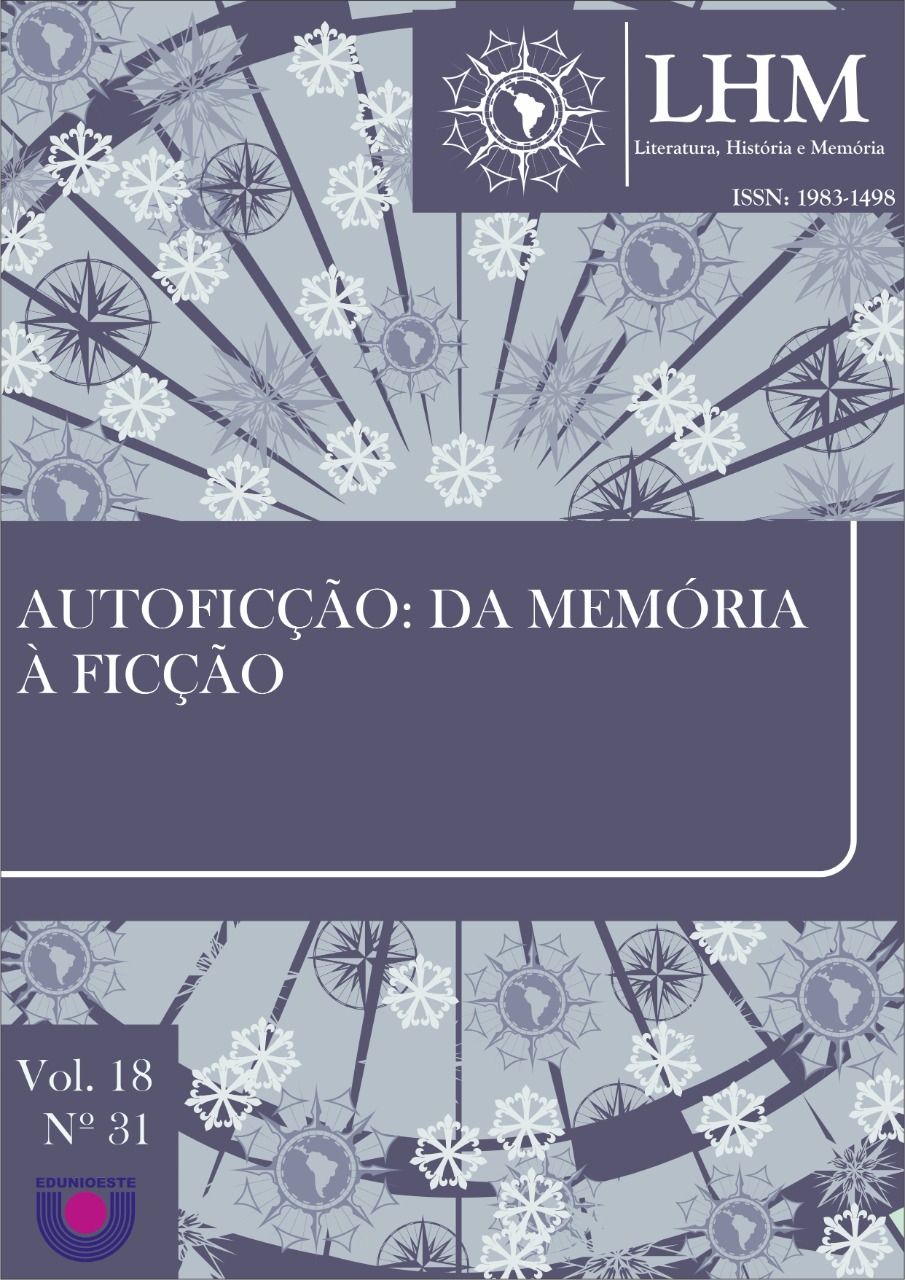O desdobramento da autobiografia em heterobiografia
um estudo sobre a memória poética em Boitempo, de Carlos Drummond de Andrade
DOI:
https://doi.org/10.48075/rlhm.v18i31.28974Resumo
Este artigo pretende discutir a estreita e conflituosa relação entre autobiografia e poesia em poemas da trilogia Boitempo, de Carlos Drummond de Andrade. A temática mostra-se significativa para a problematização de uma leitura mais ingênua que busca as razões do poema na esfera extraliterária, isto é, na vida do poeta, assim como para uma compreensão mais ampla sobre o sujeito lírico como um complexo elemento ficcional. Para isso, este trabalho baseia-se nas concepções teóricas de Hoisel (2019), Lejeune (2014), Arfuch (2010), Smith (1971) e Iser (1996, 2002), debatendo sobre o espaço autobiográfico na poesia e sobre uma recepção mais astuciosa da lírica memorialística de Drummond. O artigo discute, ainda, com o aporte de Halbwachs (1990), Silva (2009), Miranda (1988) e Santiago (2008, 2004), o ingrediente coletivo das memórias e a ressemantização do sujeito na ficção. As análises dos poemas dialogam com o suporte crítico de Candido (2000), Villaça (2006) e Pedrosa (2011) e visam esclarecer como os textos memorialísticos de Drummond propõem a recriação do passado de um “eu” que se reconhece como “outro” e projeta-se no “outro”, sendo constantemente coescrito no ato da leitura.
Downloads
Publicado
Como Citar
Edição
Seção
Licença

Este trabalho está licenciado sob uma licença Creative Commons Attribution-NonCommercial-ShareAlike 4.0 International License.
Aviso de Direito Autoral Creative Commons
Política para Periódicos de Acesso Livre
Autores que publicam nesta revista concordam com os seguintes termos:
1. Autores mantém os direitos autorais e concedem à revista o direito de primeira publicação, com o trabalho simultaneamente licenciado sob a Licença Creative Commons Attribution que permite o compartilhamento do trabalho com reconhecimento da autoria e publicação inicial nesta revista.2. Autores têm autorização para assumir contratos adicionais separadamente, para distribuição não-exclusiva da versão do trabalho publicada nesta revista (ex.: publicar em repositório institucional ou como capítulo de livro), com reconhecimento de autoria e publicação inicial nesta revista.
3. Autores têm permissão e são estimulados a publicar e distribuir seu trabalho online (ex.: em repositórios institucionais ou na sua página pessoal) a qualquer ponto antes ou durante o processo editorial, já que isso pode gerar alterações produtivas, bem como aumentar o impacto e a citação do trabalho publicado (Veja O Efeito do Acesso Livre).
Licença Creative Commons
Esta obra está licenciada com uma Licença Creative Commons Atribuição-NãoComercial-CompartilhaIgual 4.0 Internacional, o que permite compartilhar, copiar, distribuir, exibir, reproduzir, a totalidade ou partes desde que não tenha objetivo comercial e sejam citados os autores e a fonte.


